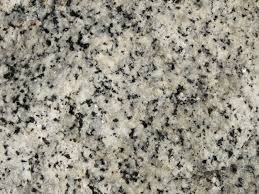记忆方法
In reference to the appearance of the rock.
中文词源
granite 花岗岩
来自grain, 颗粒。因这种岩石颗粒状的纹理而得名。
英语词源
- granite
-
granite: [17] Etymologically, granite is ‘grainy or granular rock’. The word was borrowed from Italian granito, a derivative of grano ‘grain’ (which is related to English grain). (English acquired the Italian feminine form granita in the 19th century as a term for a granular form of water ice.)
=> grain - granite (n.)
- 1640s, from French granit(e) (17c.) or directly from Italian granito "granite," originally "grained," past participle adjective from granire "granulate, make grainy," from grano "grain," from Latin granum "grain" (see grain (n.)). In reference to the appearance of the rock. Used figuratively for "hardness" (of the heart, head, etc.) from 1839. New Hampshire, U.S., has been the Granite State since at least 1825.
权威例句
- 1. Here the Nile broadens out between the huge granite boulders.
- 尼罗河在此处变宽,从两块花岗岩巨石间穿过。
- 2. "Well," I said, grinding my cigarette nervously into the granite step.
- “好吧,”我边说边紧张不安地把香烟在花岗岩台阶上捻灭。
- 3. The towers are made of steel cased in granite.
- 这些塔楼是钢结构,花岗岩贴面。
- 4. The old man's grave is made of granite.
- 那老人的墓是用花岗石造的.
- 5. His grave is made of granite.
- 他的墓是用花岗石造的.

